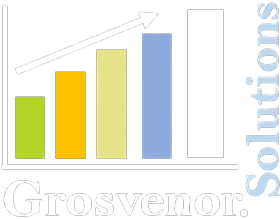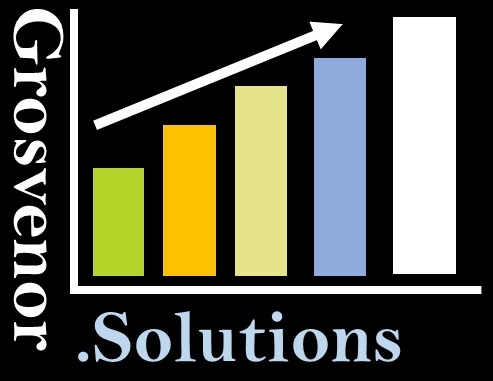In the UK, the self-assessment tax return is a system HM Revenue and Customs (HMRC) uses to collect Income Tax. It’s a critical process for individuals and contractors, and its timely completion is of utmost importance. This blog post will delve into the requirements around self-assessments, potential penalties for non-compliance, and the importance of using a qualified accountant.
overview of the self-assessment Regime
Self-assessment is used by HMRC to collect tax from individuals and businesses who have income that is not taxed at source. This includes the self-employed, partners in a business, and individuals who have complex tax affairs, such as contractors, landlords or those earning foreign income.
The self-assessment process involves completing a tax return each year. This return details your income and capital gains (profits on the sale of certain assets) and claims tax allowances and reliefs. The tax year runs from 6 April one year to 5 April the next.
do you need to complete a return?
You must complete a self-assessment return if in the last tax year (6 April to 5 April), any of the following is applicable:
- you were a partner in a business partnership
- You had taxable income in excess of £150,0000
- You were “self-employed” as a sole trader and earned over £1,000
- You were required to pay capital gains tax when you sold an item that increased in value
- You were required to pay the high income child benefit charge
- You were an “off-payroll” worker, ie, a contractor – one who provides services to a client through an intermediary such as a limited company or personal services company
the importance of timely completion
Completing your self-assessment on time is crucial for several reasons:
- Planning Your Finances: Knowing how much tax you owe, and when you need to pay it, helps you plan your finances better. It can help avoid last-minute surprises and ensure you have sufficient funds to meet your tax obligations.
- Maintaining Compliance: Timely completion of your self-assessment ensures you maintain compliance with UK tax laws, helping to avoid unnecessary complications or legal issues down the line.
- Avoiding Penalties: HMRC imposes penalties for late filing and late payment, starting from £100 if your tax return is up to three months late. The penalties increase the later your submission and payment are.

Potential penalties for late submission and payment can be quite severe. If your tax return is 3 months late, you’ll be charged an initial penalty of £100, and the longer you delay, the more you’ll have to pay. If you’re 6 months late, you’ll be charged a daily penalty of £10 per day up to a maximum of £900. If you’re 12 months late, you’ll be charged an additional £300 or 5% of the tax due, whichever is higher.
Tips for completing self-assessment returns
Organizing your records effectively for self-assessment can make the process smoother and more efficient. Here are some tips:
- Use Digital Tools: You can use spreadsheets, apps, or bookkeeping software to keep track of your records1. These tools can help you organize your income and expenses, calculate your tax, and prepare your self-assessment tax return.
- Maintain Well-Labeled Folders: Keep well-labeled folders for pay stubs, statements, expense receipts, and other relevant documents. This will make it easier to find the information you need when you’re preparing your tax return.
- File Your Invoices: File your invoices in a safe space, preferably in alphabetical and date order1. This will help you keep track of your income and ensure that you don’t miss out on any income when you’re calculating your tax.
- Use a Separate Bank Account for Business Transactions: If you’re a sole trader or a contractor, consider using a separate bank account for your business transactions1. This can make it easier to keep track of your business income and expenses.
- Set a Tax Calendar: Create a calendar with important tax deadlines, payment due dates, and estimated taxes to manage returns efficiently. This can help you avoid missing any deadlines and incurring penalties.
- Keep Records for the Required Period: In the UK, you’re required to keep your records for at least 5 years after the 31 January submission deadline of the relevant tax year. For example, for the 2022-23 tax year where online submission was due by 31 January 2024, you must keep your records until at least the end of January 2029.
Good record keeping is crucial to ensuring you are paying the right amount of tax. If you’re unsure about anything, it’s always a good idea to consult with a professional such as PerialServices.com
common mistakes (to avoid!)
Some of the mistakes listed below sound pretty obvious, but a number of people make them!
- Missing the Deadline
- Incorrect Personal Information
- Overlooking Taxable Income Sources
- Ignoring Allowable Deductions
- Inaccurate Record Keeping
- Misclassifying Expenses
- Neglecting Tax Credits
- Incorrect figures or incomplete information.
- Ticking the wrong box(es) when completing the return
- Over-claiming allowable expenses

conclusion
Completing your self-assessment returns by the required deadlines is a crucial part of managing your finances effectively. Organising your records and ensuring you have complete records will make the process efficient, irrespective of whether you complete your return yourself or hire a professional to do it for you.
It is probably worth hiring a professional who can help with:
- Optimising your tax position, thus reducing tax payments
- Ensuring accuracy of your self-assessment
- Saving you the time and stress of completing the return
- Keeping you updated on any changes to tax rules

